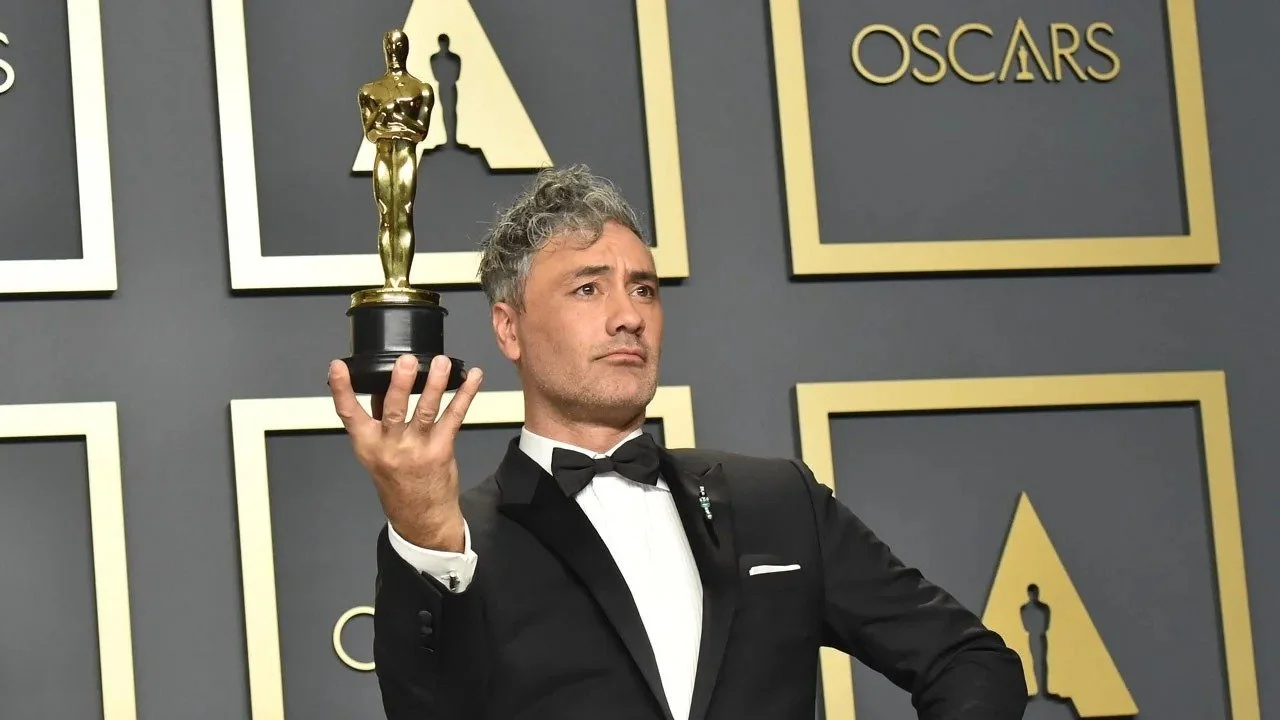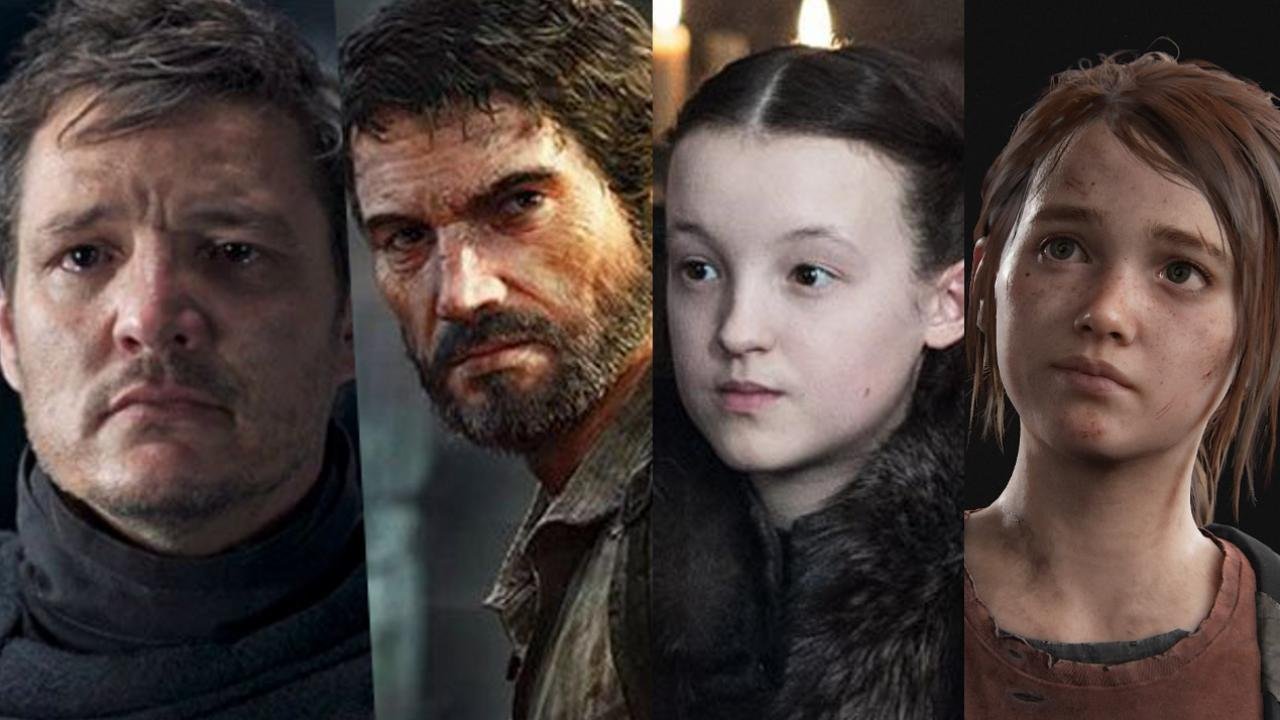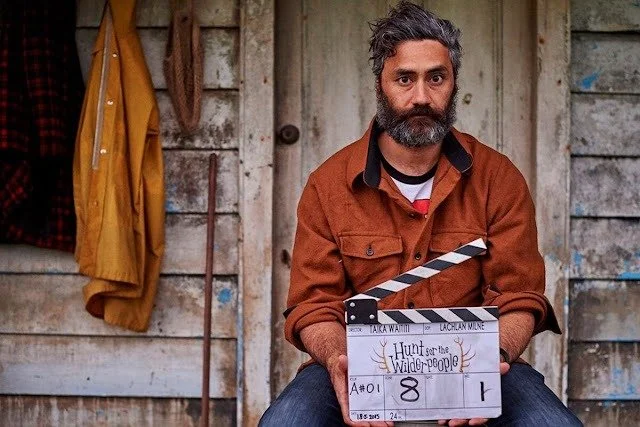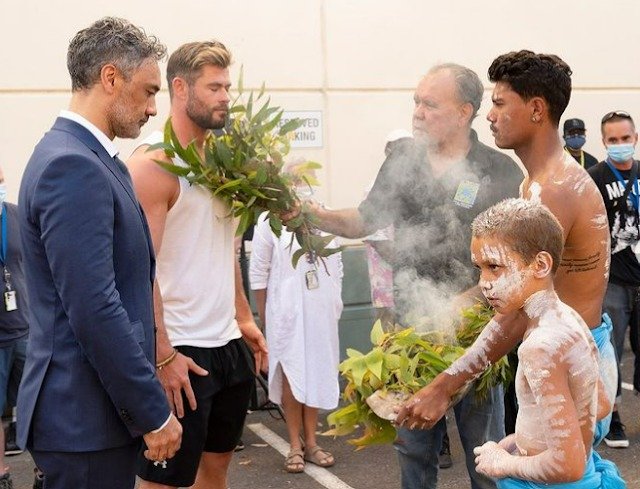Why Taika Waititi’s Devotion To Indigenous Stories Is Making Hollywood Better
After winning his first Academy Award in February 2020 for Best Adapted Screenplay, filmmaker Taika Waititi closed his speech with an emotional dedication; “I dedicate this to all the Indigenous kids in the world who want to do art and dance and write stories. We are the original storytellers and we can make it here as well. Thank you. Kia ora.” The words were personal to Waititi, who is Māori (Te Whānau-ā-Apanui iwi) and has spent his career uplifting and representing his culture. His Academy Award for his film Jojo Rabbit marked only the second time an Indigenous person had been awarded an Oscar. (The first indigenous person to win an Academy Award was Buffy Sainte-Marie, who won Best Original Song in 1982 for the film An Officer and A Gentleman.)
Although he is now known for his distinct style of witty, eccentric stories with an emotionally biting third act, Waititi did not start making films until his late twenties. His short film about two Māori teenagers waiting for their parents in a car park, Two Cars, One Night (2004), earned him his first Academy Award nomination and put him on the map, leading him to his first feature, Eagle vs. Shark (2007).
RELATED:
Indigenous representation has always been the heart of Waititi’s work. His second feature, Boy (2010), tells the story of a young Māori boy growing up in the East Cape of Aotearoa, New Zealand, in the 1980s. The story takes inspiration from Waititi’s childhood, with the director/writer also playing the role of the semi-absent father. The emotional film ends with a Haka version of Thriller, during the credits set to the song ‘Poi E’ by Patea Māori Club in a celebration of Māori culture. At the time of its release, Boy was the highest-grossing local film of all time in Aotearoa, New Zealand. (It would later be surpassed by another Waititi film, The Hunt for the Wilderpeople, in 2016.)
In 2014, Waititi co-founded Piki Films, a production company “committed to thought-provoking stories from underrepresented perspectives.” Piki, which means to climb over or ascend in te reo Māori, has produced such films as Jojo Rabbit, The Hunt for the Wilderpeople, and The Breaker Uppers. In 2020 Piki Films announced a new initiative, focusing specifically on Māori storytelling by Māori voices that delve into themes such as colonialism and forced assimilation.
When speaking to the New York Times in 2017, Waititi noted that the people who are the most upset by his films are the pakehas (non-Māori residents of Aotearoa, New Zealand): “They’re usually disappointed that there aren’t, like, more ghosts in the story. ‘Shouldn’t he be talking to his dead mother right now?’ No, because that never happens to anyone. Never happened to me.”
While ghost stories and whale riding aren’t part of Waititi’s mission, he remains dedicated to amplifying Indigenous voices. “I’m very proud of being a Māori filmmaker,” he said, speaking to the Toronto International Film Festival in 2019, “Indigenous people should be telling their own stories…I think it’s vital that we keep telling our own stories because that’s the only way we’re gonna get that specificity…You know, I’m proud to represent my people and I’m proud that now kids come up and say ‘Oh, I wanna be a filmmaker, I wanna be a dancer, I wanna be an actor.’ You know, so the tide’s turning. There are shifts happening.”
Waititi first crossed paths with Disney when he wrote the initial screenplay for Moana, although little of his story remained in the final production. (He joked to The Guardian in 2017 that the only thing that the final film shared with his script was “EXT: OCEAN – DAY”). When he was handed the reins of the MCU’s Thor: Ragnarok in 2015, Waititi remained true to his mission, not only opening the shoot with a land acknowledgment and blessing from the Bundjalung people and a te reo Māori blessing for the cast and crew but also inviting other Indigenous creatives to shadow him and his team during the process. Ella Henry, a commentator on the Māori screen industry, based at Auckland University of Technology, praised Waititi’s insistence on bringing Indigenous voices to the table during Thor stating, “He brought his Indigenous sensibilities to it by asking producers to ensure there were Indigenous trainees in every department.”
Waititi continues to advocate for the inclusion of Indigenous voices throughout Hollywood. Partnering with Sterlin Harjo (Seminole/Muscogee), Waititi served as executive producer and co-creator/writer for Hulu’s Reservation Dogs. Harjo spoke highly of his partnership with Waititi, both sharing the desire to tell Native stories by Native people. “The stories we would tell [each other] were funny,” he said, “They were never sad or depressing, which are the only stories that ever get told about Native people.” Reservation Dogs, which follows the lives of four Indigenous teenagers living on a reservation in Oklahoma, was released on International Day of the World’s Indigenous Peoples in 2021, with a second season called a month later.
Even Waititi’s upcoming Thor: Love and Thunder carries the influence of Indigenous stories. The production began filming on Australia Day, a holiday that initially marked the arrival of the first British ships in 1788 but has evolved over time to celebrate and acknowledge the history of Aboriginal Australians. Similar to the production of Thor: Ragnarok, Waititi started filming with a blessing and cultural dances from Gadigal and Bidiagal Nation performers. The exposure to Indigenous cultures and rights encouraged Thor star Chris Hemsworth to post about the holiday, writing on Instagram on January 26, 2021: “Indigenous Australians may be just as proud of this country, but many see January 26 as a date signifying the beginning of dispossession, disease epidemics, frontier violence, destruction of culture, exploitation, abuse, separation of families and subjection to policies of extreme social control. Let’s begin the healing and stand together in unity and support with our First Nations people with solidarity and compassion. Let’s find a date where all Australians can celebrate this beautiful country together.”
In January 2021, it was announced that Waititi would be the Executive Producer on Frybread Face & Me, a coming-of-age story centered around two Diné (Navajo) cousins. The film features an all-Native cast directed by Billy Luther (Diné, Hopi, Laguna Pueblo). Filming wrapped in late summer 2021, with the release date still to be announced. After the release of Thor, Waititi’s next project will be Next Goal Wins, a feature film about the American Samoa national football team and their path to the World Cup in 2004. The film heavily features Polynesian actors, including Rachel House and David Fane, who appeared in Waititi projects in the past.
Although Waititi is not the only Indigenous creator working in Hollywood, he is certainly using his influence to ensure more Indigenous people are able to succeed in an industry that has historically excluded them. Through humor, mentorship, and heart, Waititi is opening the doors to a more inclusive entertainment industry, one that’s focused on Indigenous people telling their own stories. Tēnā rawa atu koe e Taika.
READ NEXT:
Source(s): The Guardian, The New York Times, Piki Films





